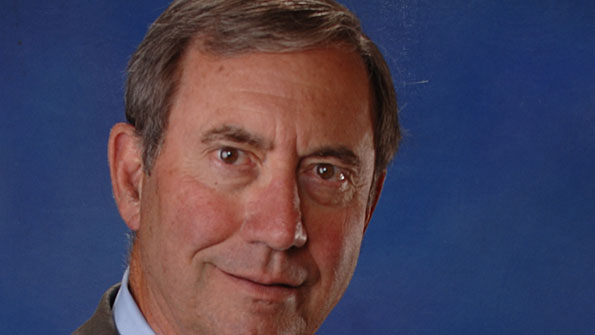Ginn: 2014 a ‘foundation’ year; deployments likely to begin in 2015
ANAHEIM, Calif.—Network deployments for the much-anticipated nationwide broadband network for first responders likely will begin in earnest in 2015, FirstNet Chairman Sam Ginn said yesterday during a session at the Association of Public Safety Communications Officials (APCO) conference.
Ginn made his remarks the day after the one-year anniversary of the 15-member FirstNet board being announced at last year’s APCO show. Two months later, the board was given numerous challenging directives by then-Acting Secretary of Commerce Rebecca Blank, he said. Since then, the FirstNet board has taken significant steps, according to Ginn.
“For the last 10 months, this board has come together, and I think we have made remarkable progress,” Ginn said. “We have a plan that, if we can execute [it] in 2014, we will have created the foundation that suggests that this network will be built.
“As we move forward here in 2014, I think you’re going to see a lot of benchmarks being obtained and a lot of progress. I would expect that you might see networks being established in the year 2015 and 2016.”
This timetable is in line with projections from many industry observers, particularly after FirstNet last week announced that Adams County, Colo., and Charlotte, N.C.—two jurisdictions that already had purchased LTE network equipment and were projected to begin operations last summer—will not reach a spectrum-lease agreement with FirstNet that is necessary to pursue their planned LTE projects.
One other jurisdiction—the state of Mississippi—already has deployed more than 130 sites for its statewide public-safety LTE network, but the state will have to resolve some significant issues to complete its planned project. FirstNet is still trying to negotiate a spectrum-lease arrangement with Mississippi and the state of Texas, which is representing Harris County, Texas, where the only public-safety LTE system in operation today is located.
Both the Los Angeles Regional Interoperable Communications System Authority (LA-RICS) and the state of New Mexico have spectrum-lease agreements with FirstNet, but both still need to complete a potentially lengthy bidding process to select a vendor to build their systems. Conversely, the San Francisco Bay area already has its vendor—Motorola Solutions, which also is the recipient of $56 million in grant money for the LTE project—but is still negotiating a spectrum-lease agreement with FirstNet.
Ginn said he is “very pleased with the progress of the board,” which has transitioned to a more traditional role; previously, several board members had to also fill many key staff roles for several months until full-time personnel could be hired.
“I think a lot has been accomplished. There’s an incredible amount to do, but I think the board is in a position now [where] we’re working well together, we know what we have to achieve, and we know to measure management. My own prediction is that we’re going to get these networks built.”
FirstNet board member Jeff Johnson, who joined Ginn as a speaker during the APCO session, echoed this sentiment, noting that the board has had to work carefully around limitations associated with legal issues and hiring procedures.
“The fact that we’ve come as far as we have in 10 months, with the constraints that we have, is just nothing short of astonishing,” Johnson said. “Real progress is being made right now. We have a [strategic] plan, we have talented staff that—like the board—are here for the right reasons, and we’re starting to make progress.”
Some public-safety representatives have expressed concern that FirstNet board members with commercial-wireless background may overlook first-responder needs when building the network, but Johnson—a 32-year veteran of the fire service—said that is not an issue.
“I can tell you that the industry members on our board not only get [public safety’s needs], but sometimes they get it better than we get it,” he said. “To watch the discipline and focus of our industry partners on making sure that this is mission-critical—to hear them say, ‘This is not going to be a commercial-grade network,’ to hear them—in every discussion and at every turn—insist on this network being hard and resilient … to hear them insisting on things that should only matter to public safety is very rewarding to me.”
To conclude the session, Ginn compared FirstNet to his mother baking a cake, after first gathering the necessary ingredients and pre-heating the oven.
“I think, at the end of next year, we’re prepared to construct the cake, put it in the oven and provide service,” Ginn said. “I think that during 2014, in conceptual terms, we’re setting the foundation that will allow us to execute on the nationwide network … 2014 is a foundation-setting period.”














